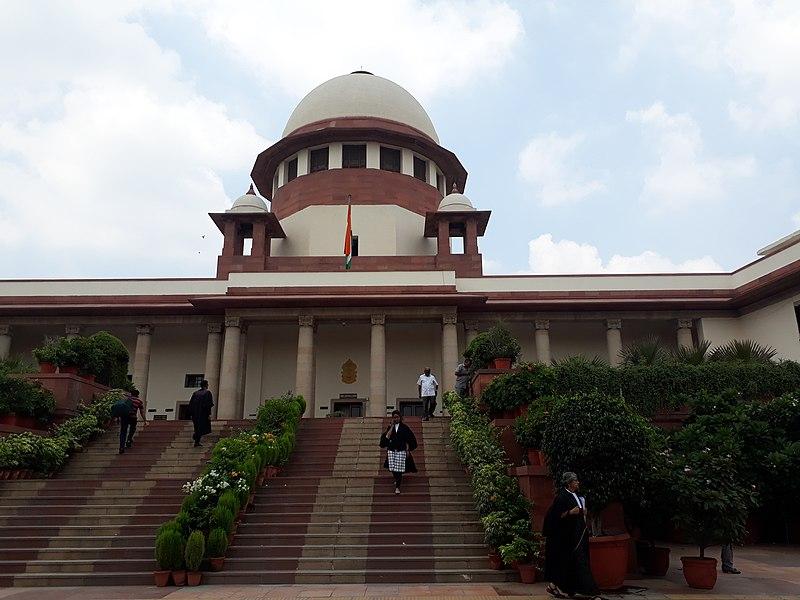Bilkis Bano Case: SC to Consider Plea Against Remission to Convicts

Supreme Court. Image Courtesy: Wikimedia Commons
The Supreme Court (SC) would consider hearing a plea challenging the grant of remission by the Gujarat government to the 11 convicts in the 2002 Bilkis Bano gang rape case.
The petition was filed by Communist Party of India (Marxist) member Subhashini Ali, journalist Revati Laul and professor Roop Rekha Verma, LiveLaw reported.
A Bench headed by Chief Justice of India (CJI) NV Ramana took note of the submissions of senior advocate Kapil Sibal and lawyer Aparna Bhat against the grant of remission on Tuesday and agreed to look into the matter.
When CJI Ramana asked if the convicts were granted remission by virtue of an SC order, Sibal replied that the apex court had mere given “a discretion to the government to consider it”.
“We are only challenging the remission and not the Supreme Court order. The Supreme Court order is fine, My Lords. We are challenging the principles on the basis of which remission was granted,” Sibal submitted.
The convicts were released from a Godhra jail on August 15 after the SC in May ruled that Gujarat government is the appropriate government to consider the remission and directed that the remission application be decided within two months. A Bench comprising Justices Ajay Rastogi and Vikram Nath observed that the appropriate government under Section 432(7) of the CrPC can be either the central or the state
government but there cannot be a concurrent jurisdiction of two state governments.
The SC had allowed a writ plea moved by one of the convicts, Radheshyam Bhagwandas Shah, seeking direction to the Gujarat government to consider his application for premature release under the policy dated July 9, 1992, which was existing at the time of his conviction.
Subsequently, the government formed a committee headed by the Godhra district collector which recommended the release of all the 11 convicts. Later, the Gujarat government decided to grant them the benefit of the remission policy.
However, in an interview with LiveLaw, criminal law expert senior advocate Rebecca M John said that the apex court had erred in holding that Gujarat has the jurisdiction to grant remission because as per Section 432(7) of the CrPC, only the state where the trial was held has the power to decide remission. Therefore, the Maharashtra government is the “appropriate government” to consider the issue of remission, she said.
A five-months pregnant Bano was gang-raped and her three-year-old daughter Saleha was among 14 people killed by a mob in Dahod on March 3, 2002, in communal riots that consumed Gujarat following the death of 59 passengers, mainly ‘Kar Sevaks’, when the Sabarmati Express was set on fire.
The SC had ordered a Central Bureau of Investigation (CBI) probe after Bano approached the National Human Rights Commission (NHRC). In 2004, the court had transferred the trial from Gujarat to Maharashtra considering her grievance that she was receiving death threats from the accused.
In January 2008, a special CBI court in Mumbai had awarded life imprisonment to the 11 convicts, which was upheld by the Bombay High Court.
In 2019, the SC had directed the Gujarat government to pay Rs 50 lakh compensation and to provide a government job to Bano after noting that she was 21 years old at the time of the incident and that her three-year-old child was killed in the riots.
Get the latest reports & analysis with people's perspective on Protests, movements & deep analytical videos, discussions of the current affairs in your Telegram app. Subscribe to NewsClick's Telegram channel & get Real-Time updates on stories, as they get published on our website.
























